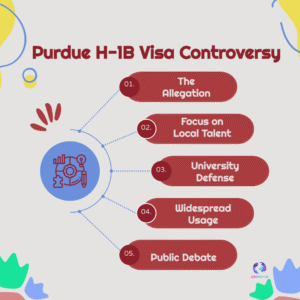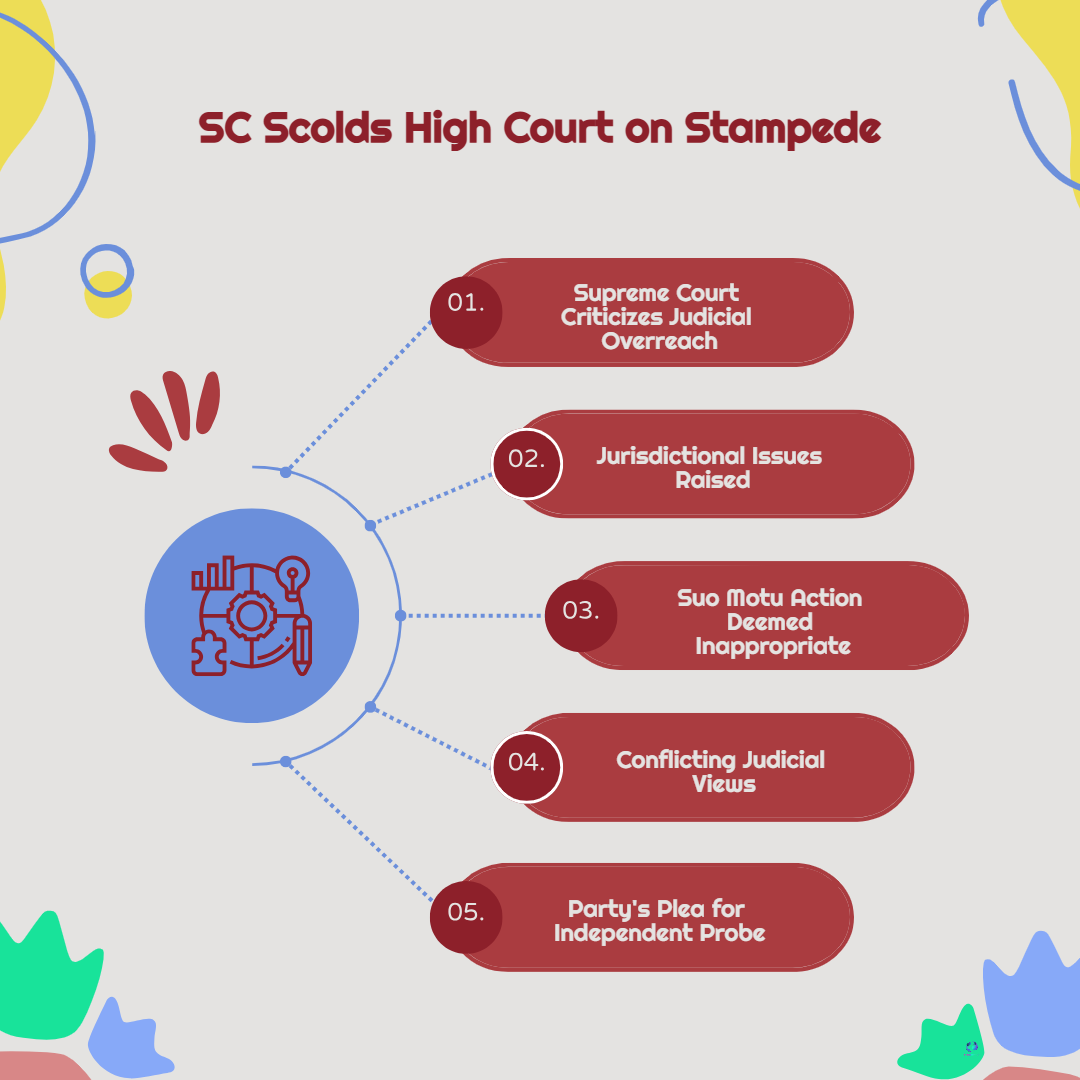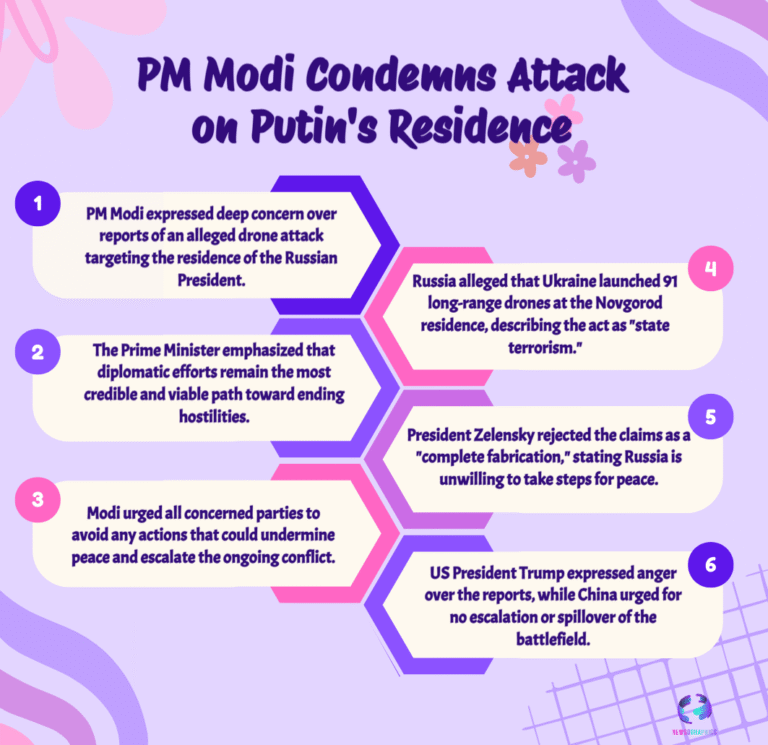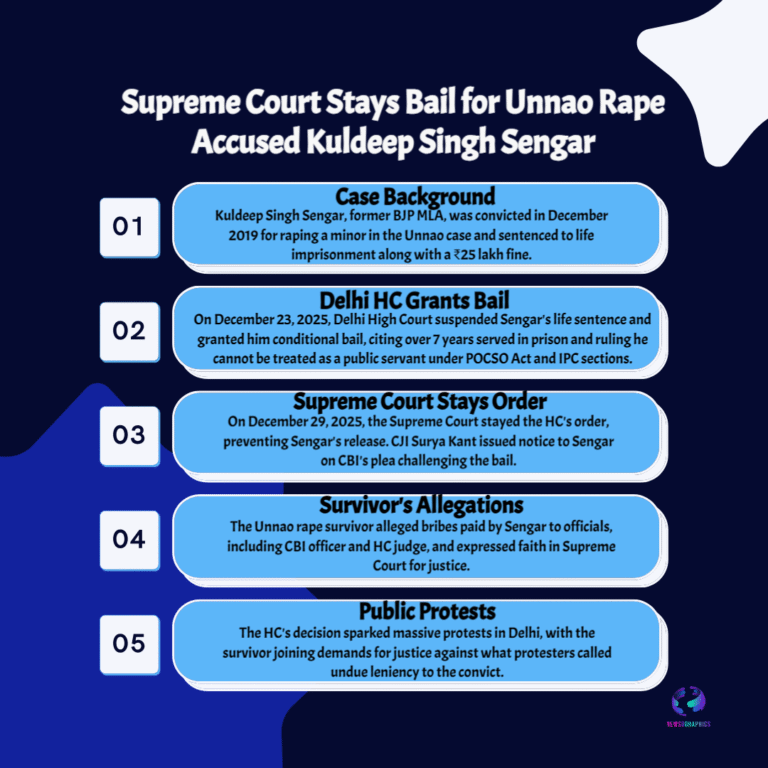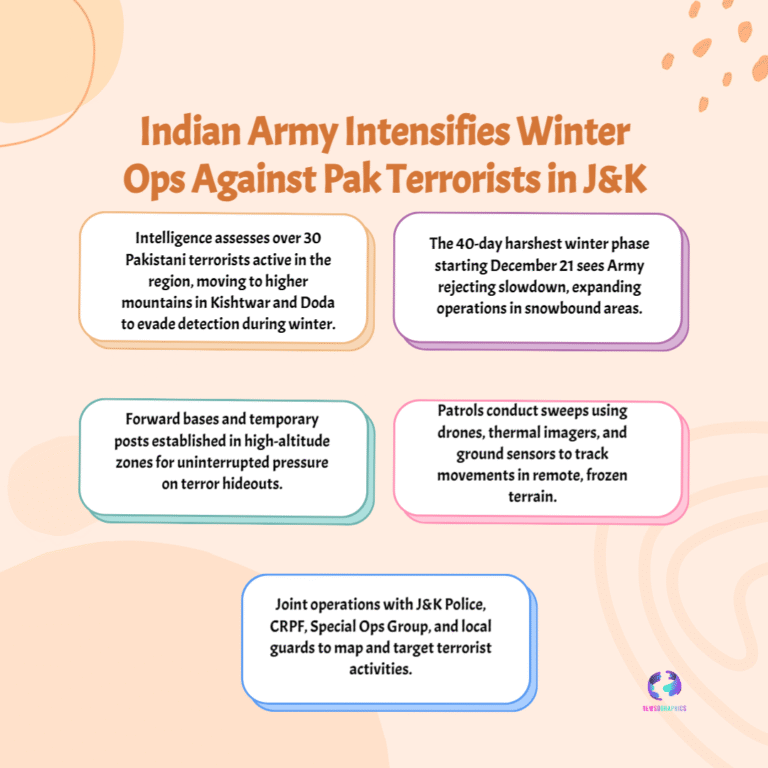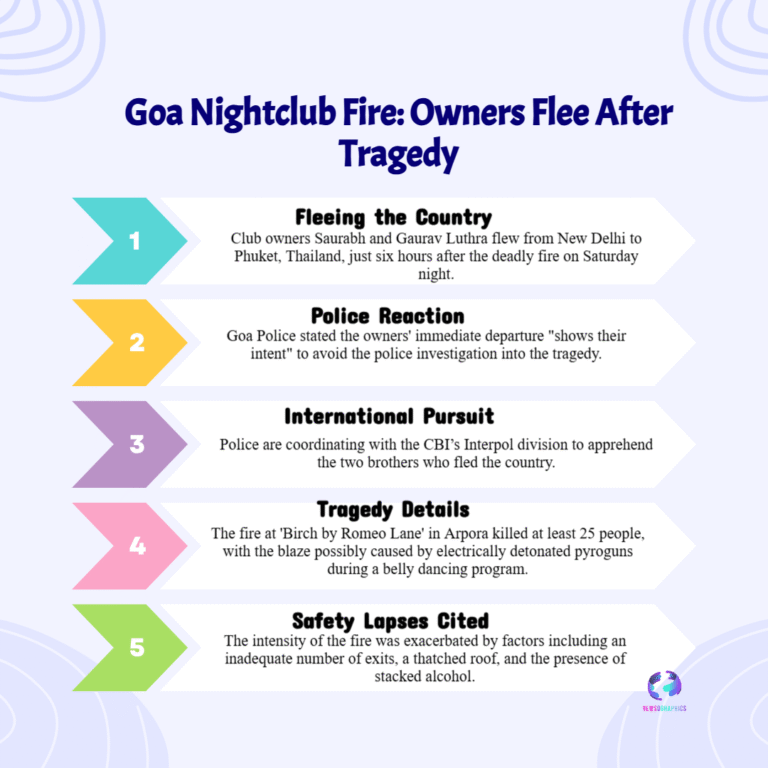SC criticises Madras High Court’s suo motu SIT order in the Karur stampede case, flags jurisdictional lapses and lack of sensitivity; probe direction and legal implications explained.
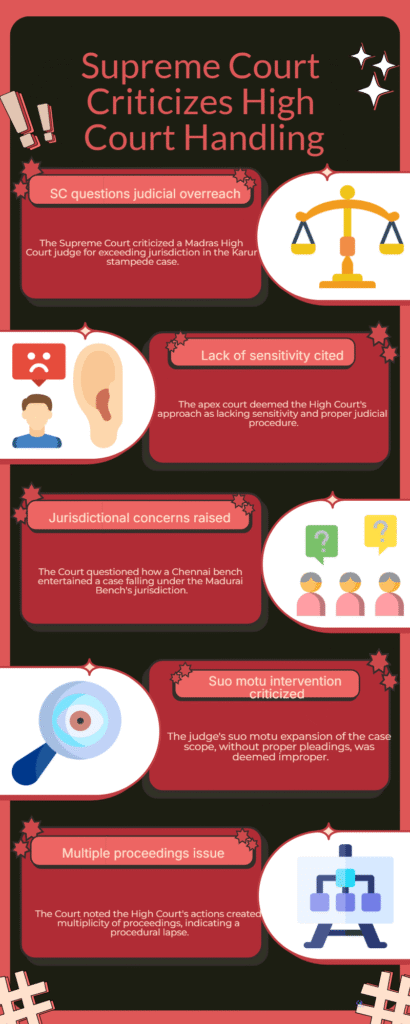
The Supreme Court has strongly criticised the Madras High Court’s handling of the Karur stampede case, calling its approach lacking in sensitivity and legal discipline. Hearing petitions related to the tragic incident that took place during a political rally in Karur, the top court objected to the manner in which a single-judge bench of the Madras High Court issued directions to set up a Special Investigation Team (SIT) suo motu — without adequate reasoning or jurisdiction.
The Supreme Court noted that the Karur stampede matter legally falls under the territorial jurisdiction of the Madurai Bench, where an earlier petition had already been listed before a Division Bench. Despite this, a judge at the principal seat in Chennai expanded an unrelated writ petition into a criminal investigation order, appointed an SIT, and even passed adverse remarks against the political party involved — all without giving those affected an opportunity to be heard. The apex bench said such an approach risked creating parallel proceedings and undermining public confidence in judicial procedure.
The Karur stampede, which occurred during a public event attended by actor-politician Vijay and organised by his party Tamizhaga Vettri Kazhagam (TVK), led to multiple fatalities and serious questions over crowd management. Initial reports indicated that while permission had been granted for 10,000 attendees, police estimates suggested that over 27,000 people turned up, leading to a massive bottleneck near the exit gates. The High Court, while taking cognisance, had observed possible lapses by the organisers and had directed a suo motu SIT probe.
However, the Supreme Court found fault not with the intent but with the method. It questioned why sweeping conclusions were drawn by the single judge without citing material on record. It also asked why the High Court did not leave the investigation to the Division Bench already hearing the matter. Judicial discipline, the Supreme Court remarked, demands restraint, consistency and respect for jurisdiction rather than judicial overreach — even when dealing with tragic incidents.
The apex court further stated that while the demand for an independent probe may be understandable, such decisions must be supported by evidence, reason and procedure. Interventions made without foundational findings could lead to confusion between state police investigations, court-appointed commissions and SITs functioning simultaneously.
Legal observers say the Supreme Court’s remarks are significant not only for the Karur case but also for defining the limits of judicial activism. They emphasise that the ruling is a reminder that sensitivity in legal matters does not lie in taking swift actions but in ensuring fairness, clarity and consistency.
The families of victims and the public at large now await clarity on how the investigation will proceed. The Supreme Court is expected to define next steps, either by transferring the case to a central agency like the CBI or directing the state police to continue under strict monitoring. What is certain, however, is that the top court has made it clear that while accountability is non-negotiable, it must be achieved through due process.
The Karur stampede investigation has now become as much a test of judicial coordination as it is of law enforcement responsibility. With the Supreme Court stepping in, the focus is now shifting from political blame to procedural clarity — a move that could set a precedent for how mass gathering tragedies are legally handled across India.

